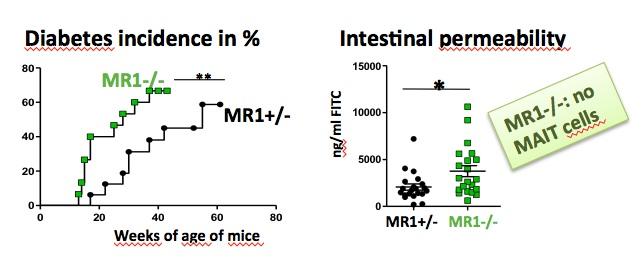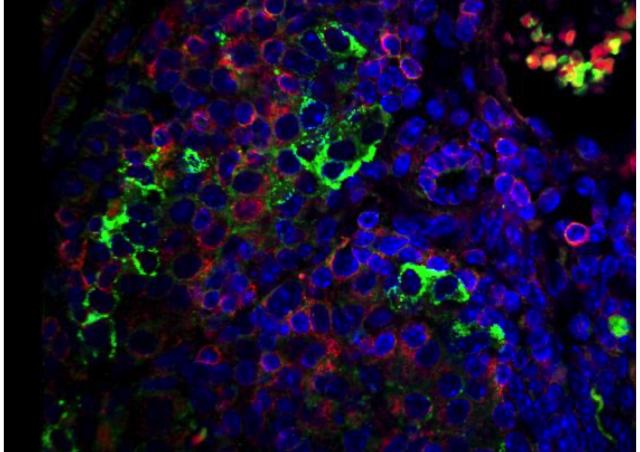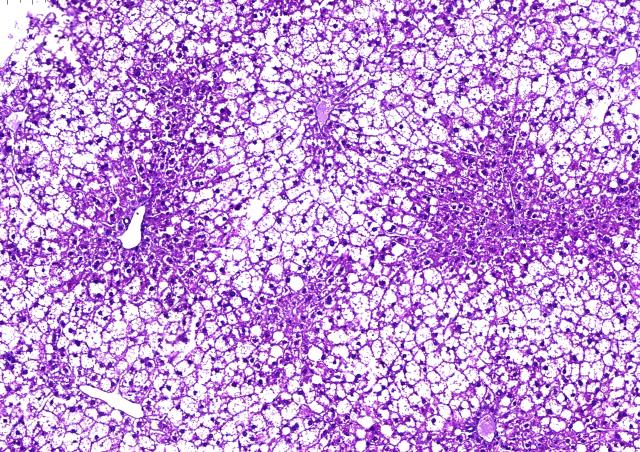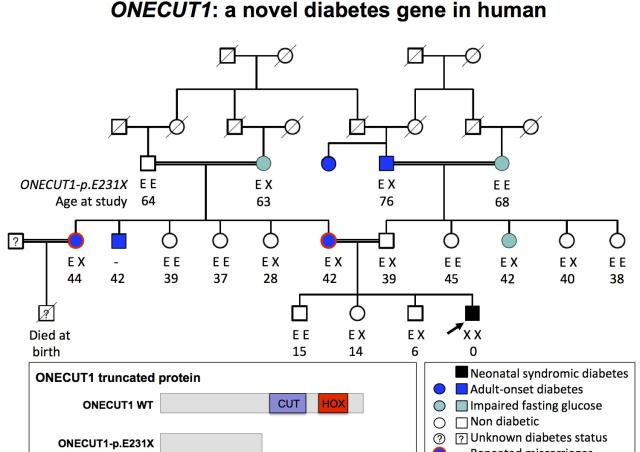Members of the project
Our Project
We wish to determine the role of innate-like T cells in the regulation of T1D. Natural killer T (NKT) cells and Mucosal Associated Invariant T (MAIT) cells are non-conventional T cells that recognized lipid antigens and vitamin metabolites, respectively. As such they play a critical role as sensors of metabolic abnormalities. Importantly these innate-like T cells can regulate both innate and adaptive immunity. MAIT cells are present in various tissues and more particularly in the liver and the gut, where they are activated by bacterial ligands. Due to the impact of microbiota in the development of T1D, we are presently analyzing the role of MAIT cells in this pathology. The studies are performed in patients as well as in mouse models.
Our research
In T1D patients, circulating MAIT cells are significantly decreased, and their activation status is more pronounced in young children. We have generated non-obese diabetic (NOD) mice devoid of MAIT cells (MR1-/-), as well as transgenic NOD mice exhibiting high MAIT cell frequency. Our data in murine models revealed a protective role of MAIT cells against the development of T1D. MAIT cells play a pivotal role in the maintenance of the gut integrity thereby dampening the autoimmune response. In parallel to the murine studies, we are analyzing MAIT cells in different cohorts of T1D patients.


Selected publications
Kariyawasam D, Morin C, Casteels K, Le Tallec C, Sfez A, Godot C, Huneker E, Garrec N, Benhamou PY, Polak M, Charpentier G, Franc S, Beltrand J. Hybrid closed-loop insulin delivery versus sensor-augmented pump therapy in children aged 6-12 years: a randomised, controlled, cross-over, non-inferiority trial. Lancet Digit Health. 2022 Mar;4(3):e158-e168. doi: 10.1016/S2589-7500(21)00271-5. PMID: 35216750.
Rouland M, Beaudoin L, Rouxel O, Bertrand L, Cagninacci L, Saffarian A, Pedron T, Gueddouri D, Guilmeau S, Burnol AF, Rachdi L, Tazi A, Mouriès J, Rescigno M, Vergnolle N, Sansonetti P, Christine Rogner U, Lehuen A. Gut mucosa alterations and loss of segmented filamentous bacteria in type 1 diabetes are associated with inflammation rather than hyperglycaemia. Gut. 2022 Feb;71(2) 296-308. doi:10.1136/gutjnl-2020-323664. PMID: 33593807.
Nel I, Beaudoin L, Gouda Z, Rousseau C, Soulard P, Rouland M, Bertrand L, Boitard C, Larger E, Lehuen A. MAIT cell alterations in adults with recent-onset and long-term type 1 diabetes. Diabetologia. 2021 Oct;64(10) 2306-2321. doi:10.1007/s00125-021-05527-y. PMID: 34350463; PMCID: PMC8336671.
Nel I, Bertrand L, Toubal A, Lehuen A. MAIT cells, guardians of skin and mucosa? Mucosal Immunol. 2021 Jul;14(4) 803-814. doi:10.1038/s41385-021-00391-w. PMID: 33753874; PMCID: PMC7983967.
Rouxel O, Lehuen A. Mucosal-associated invariant T cells in autoimmune and immune-mediated diseases. Immunol Cell Biol. 2018 Jul;96(6) 618-629. doi:10.1111/imcb.12011. PMID: 29405379.
Rouxel O, Da Silva J, Beaudoin L, Nel I, Tard C, Cagninacci L, Kiaf B, Oshima M, Diedisheim M, Salou M, Corbett A, Rossjohn J, McCluskey J, Scharfmann R, Battaglia M, Polak M, Lantz O, Beltrand J, Lehuen A. Cytotoxic and regulatory roles of mucosal-associated invariant T cells in type 1 diabetes. Nat Immunol. 2017 Dec;18(12) 1321-1331. doi:10.1038/ni.3854. PMID: 28991267; PMCID: PMC6025738.
Nel I, Lehuen A. Defective Invariant Natural Killer T-Cell Suppression in Patients With Type 1 Diabetes. Diabetes. 2016 Aug;65(8) 2121-2123. doi:10.2337/dbi16-0021. PMID: 27456618.
Lehuen A. A double-edged sword against type 1 diabetes. N Engl J Med. 2015 Feb;372(8) 778-780. doi:10.1056/nejmcibr1414708. PMID: 25693020.



















